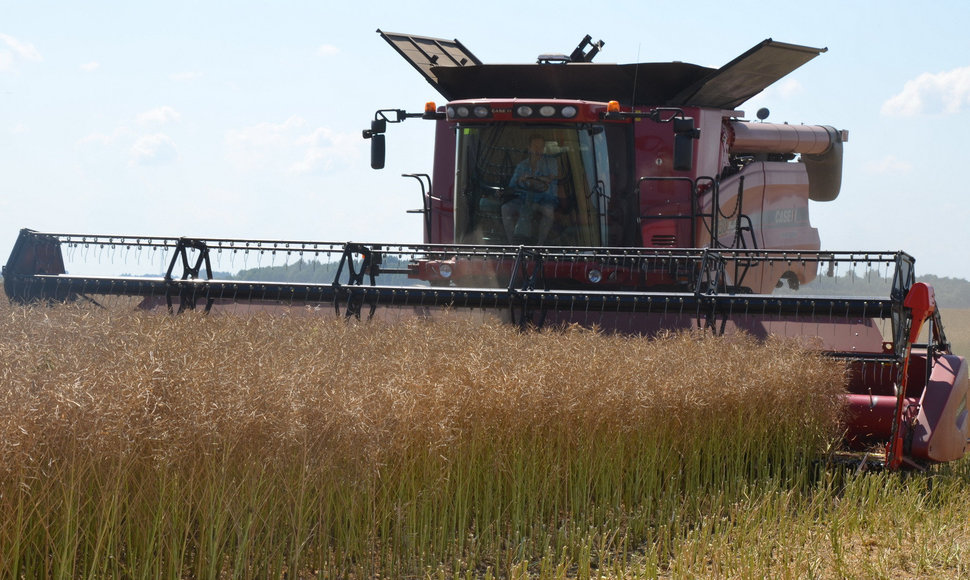“It appears that this year, the sowing of rapeseed will be delayed compared to the past two years. The most favourable period for sowing rapeseed begins on August 5 and ends on the 25th. The fields where winter rapeseed is to be sown are still being harvested, farmers will also need some time to prepare the soil for sowing, therefore the major sowing likely to take place only in the second half of August this year,” says Andrius Lukoševičius, Head of Technology Development at AB Linas Agro.
According to the expert, winter rapeseed is among the most profitable crops. Its purchase price is double that of extra class wheat and reaches around 345-360 euro per tonne. That said, rapeseed yield is usually half that of wheat.
The sowing period for winter rapeseed is especially important – the upcoming harvest depends on it. Delayed sowing can cut yields by up to 25 per cent. “If winter rapeseed is sown prior to the storks flying off, the best conditions are ensured for their vegetation, the plants take root better, accumulate more dry nutrients, put on more mass and so, in spring they have a better start and higher productivity. Late sowing increases the risk of decreased yields,” A. Lukoševičius notes.
The past two years, according to the specialist, were particularly favourable for growing winter crops. “Currently the conditions are good for sowing winter crops, but the biggest problem is that on most farms, harvesting hasn’t been completed yet. The farmers, who planned their crop rotation, harvested their winter barley yield and in early August, their early maturing winter wheat yield and have already prepared their fields for the sowing of winter rapeseed. However, there are relatively few such areas, albeit the situation is changing daily,” A. Lukoševičius says.
Currently, according to the expert, the harvests have been finished in more than 50% of fields in North and Central Lithuania, while in the West, the percentage of such fields is lower.












